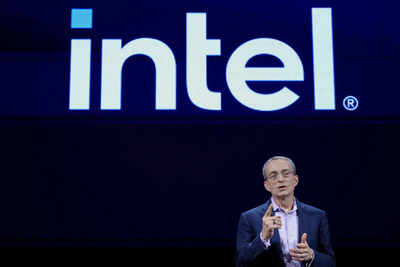- News
- Technology News
- Tech News
- Intel CEO announces major restructuring, tells employees: “We need to fight for …”
Trending
Intel CEO announces major restructuring, tells employees: “We need to fight for …”
Intel is restructuring its foundry business as an independent subsidiary to improve competitiveness in the semiconductor industry. This includes a major AI chip deal with Amazon, pausing new plant constructions in Europe, selling part of its stake in Altera, and reducing its global real estate footprint.

Intel is spinning off its foundry business as an independent subsidiary
Intel is restructuring its foundry business as an independent subsidiary, marking a major shift in strategy as the 56-year old chipmaker fights to regain its footing in the semiconductor industry
Intel CEO Pat Gelsinger outlined the changes in a memo to employees, stating, "We need to fight for every inch and execute better than ever before. Because that's the only way to quiet our critics and deliver the results we know we're capable of achieving."
The restructuring will give Intel Foundry "clearer separation and independence" from the rest of Intel, with its own operating board and separate financial reporting.
"All eyes will remain on us," Gelsinger said, emphasising the importance of the restructuring and new partnerships in Intel's turnaround efforts.
The company also revealed plans to pause construction of new
Additionally, Intel plans to sell part of its stake in Altera, a programmable chip company it acquired in 2015, and reduce its global real estate footprint by about two-thirds.
These moves come as Intel struggles to regain its footing in the competitive chip market. The company reported a $1.6 billion loss in the first quarter of 2024 and announced layoffs affecting 15,000 workers in August.
Gelsinger described the changes as "the most significant transformation of Intel in over four decades," comparing it to the company's shift from memory to microprocessors.
Intel CEO Pat Gelsinger outlined the changes in a memo to employees, stating, "We need to fight for every inch and execute better than ever before. Because that's the only way to quiet our critics and deliver the results we know we're capable of achieving."
The restructuring will give Intel Foundry "clearer separation and independence" from the rest of Intel, with its own operating board and separate financial reporting.
Gelsinger noted this structure provides "flexibility to evaluate independent sources of funding" for the foundry business.
Intel's foundry subsidiary inks AI chip deal with Amazon
In a significant win for the newly independent foundry, Intel announced a multiyear, multibillion-dollar agreement with Amazon Web Services (AWS) to produce an "artificial intelligence fabric chip" using Intel's advanced 18A manufacturing process.
"All eyes will remain on us," Gelsinger said, emphasising the importance of the restructuring and new partnerships in Intel's turnaround efforts.
chip plants in Germany and Poland for approximately two years, citing "anticipated market demand." However, Intel will continue with its US manufacturing projects in Arizona, Oregon, New Mexico, and Ohio.
Additionally, Intel plans to sell part of its stake in Altera, a programmable chip company it acquired in 2015, and reduce its global real estate footprint by about two-thirds.
These moves come as Intel struggles to regain its footing in the competitive chip market. The company reported a $1.6 billion loss in the first quarter of 2024 and announced layoffs affecting 15,000 workers in August.
Gelsinger described the changes as "the most significant transformation of Intel in over four decades," comparing it to the company's shift from memory to microprocessors.
End of Article
Latest Mobiles
FOLLOW US ON SOCIAL MEDIA











